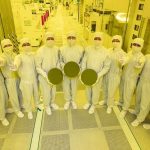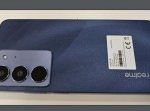NYU
- Imperial College London scientists just published a report on how psychedelics could treat depression.
- The study pits psilocybin, the active compound in magic mushrooms, against the depression drug escitalopram.
- Reduction in depression occurred more quickly with psilocybin, but the differences were not significant.
- See more stories on Insider’s business page.
In recent years, research into the use of psychedelics for the treatment of mental-health illnesses has begun to thrive.
Private companies focused on developing psychedelics-based medications for approval by the US Food and Drug Administration have raised hundreds of millions of dollars over the past year and several have gone public, garnering valuations of more than $1 billion.
Meanwhile, half a dozen prestigious universities in the US and Europe have established centers dedicated to research on psychedelics, a trend fueled by wealthy donors interested in the potential medical benefits of the substances.
But medical research into these mind-altering compounds is still nascent. Psychedelic research was virtually barred for decades and most academic institutions have only recently restarted studies testing psychedelic compounds in people.
That research is beginning to deliver results. On Wednesday, scientists published a milestone report that directly compares psilocybin, the active compound found in magic mushrooms, with the depression drug Lexapro, or escitalopram.
A compound found in magic mushrooms works as well as a major depression pill
The study, in the prestigious New England Journal of Medicine, shows that psilocybin works about as well as escitalopram to treat patients with moderate or severe major depressive disorder.
Dr. Robin Carhart-Harris, head of the Centre for Psychedelic Research at Imperial College London, led the research team.
He told Insider that while he believes the findings support the potential of psilocybin to be an improvement on current antidepressants, they are also a reality check on what he called “a kind of unbridled optimism about psychedelic therapy” driven by for-profit psychedelics companies and investors.
He added that the findings in the report are consistent with previous studies on the effectiveness of psilocybin as a depression treatment.
Thomas Angus/Imperial College London
The mid-stage trial was small, with just 59 participants, limiting scientists’ ability to draw strong conclusions. About half the volunteers were treated with psilocybin and the other half received escitalopram. All patients received psychological support throughout the trial.
Researchers found that although the reduction in depression occurred more quickly and in “greater magnitude” with psilocybin, the differences between the two treatments was not significant.
“Larger and longer trials are needed to compare psilocybin with established treatments for depression,” the article said.
Companies like Compass Pathways, which is the furthest along in testing psilocybin in clinical trials in the for-profit world, have focused on psilocybin as a treatment for treatment-resistant depression (TRD), or depression that hasn’t improved with at least two forms of treatment.
Thomas Angus/Imperial College London
Psilocybin could take a slice of a $100 billion market
Imperial’s study works to provide the academic foundation to show psilocybin’s effects on more moderate forms of depression.
“What’s on the table now is the prospect that psilocybin therapy could be an alternative to SSRIs, if it’s at least as good,” Carhart-Harris said. “What we’re showing is that people could consider psilocybin therapy earlier on in the course of a depression.”
Psilocybin has in recent years been seen as a potential disruptor to the market for depression treatments. Current treatment options don’t work for some patients and can take a long time to fully work. Canaccord Genuity has estimated that psychedelic-based medicines focused on mental health could take part in what could soon become a $100 billion market.
Thomas Angus, Imperial College London
Carhart-Harris said that the results of the study are framed in a conservative way in the journal, but he emphasized that they’re impressive. He pointed to some of the study’s secondary findings, such as the fact that about 57% of patients who received psilocybin saw their depression go into remission, while that occurred in about a quarter of patients who received escitalopram.
“To say it in a conservative way, psilocybin therapy looks at least as good as the leading treatments for depression,” Carhart-Harris said. “What you see in the paper is a very conservative framing but when you look a little bit closer under the hood, you realize it’s pretty impressive findings.”
If the trial were longer, researchers say patients who received escitalopram may have seen better efficacy
Escitalopram takes several weeks to show its full effect and the researcher note in the article that if the trial had been longer than six weeks, patients who received escitalopram may have done better.
Carhart-Harris said the fact that psilocybin seems to work faster than existing depression drugs could be a noteworthy benefit of the psychedelic.
“We’ve become so accustomed to this principle that you have to wait a couple of months for your SSRI to work and that’s not good enough,” he said. “Many people with depression are seriously considering taking their own lives and you tell them you have to wait two months to see any improvements. It’s not a great message yet we’re just accepting that.”
Scientists say that more and bigger trials are needed
The next logical step for psilocybin for depression research is a late-stage trial involving more people. Carhart-Harris says that this is where for-profit and nonprofit entities step up to the plate.
Compass Pathways and the Usona Institute, a non-profit focused on psychedelic research, are furthest along in clinical trials of the compound. Both are in phase II trials, which involves testing the treatment in up to several hundred patients.
A smattering of other psychedelics companies are also in pre-clinical or early stage research around psilocybin
Different political initiatives – like Measure 109 in Oregon, which created a regulated therapeutic psilocybin program – also provide a route to providing psilocybin therapy to patients with depression. This offers an alternative to seeking approval from the FDA.
Powered by WPeMatico






